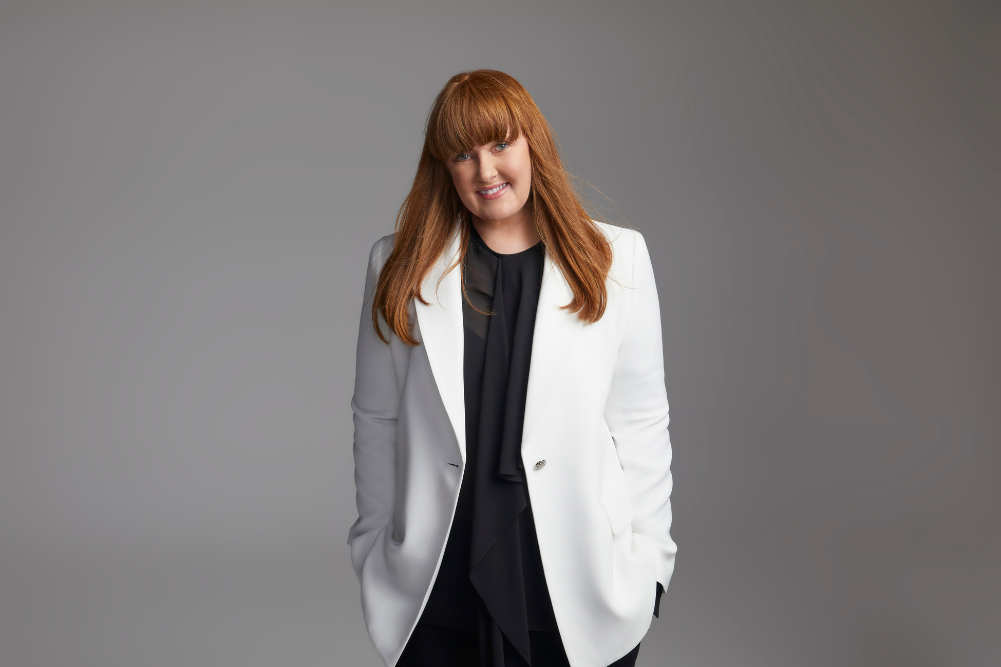Doer & Thinker: Jessica Sepel
In a world of fad diets, unrelenting beauty standards and a society built on self-improvement, holistic nutritionist Jessica Sepel is showing women how to achieve a loving, sustainable relationship with their minds, bodies and food.
Jessica Sepel is the kind, compassionate and hard-working clinical nutritionist, bestselling author, international health blogger and beloved voice behind JSHealth and @jshealth. She spoke to WellBeing from her beachside home in Vaucluse, Sydney, which she shares with her partner in business and in life, Dean Steingold.
The warm, bubbly and gracious 30-year-old is so down-to-earth that you feel that you are chatting with a close friend, which is surely how her 268 thousand Instagram followers also feel. After a quick scroll through her honest and relatable feed, which is all about cultivating a healthy relationship with food and body-love practices, you can see why she has attracted such a cult following.
“Being vulnerable, being open, being raw, real and honest — that’s always been my key to relating to the JSHealth community, so I’m always trying to be as vulnerable as I can. I’m trying to remove all the shame and stigma around all these things we’re feeling: stressed, anxious, overwhelmed, sometimes depressed.”
After having experienced her own struggles with food and body image, Sepel is passionate about helping others overcome disordered eating patterns to achieve a balanced lifestyle through feeding themselves wholefoods and loving thoughts. In between communicating directly with her community on Instagram, Facebook and YouTube, she has created her own app with recipes and health guides, as well as an eight-week online program and a vitamin company. And if that wasn’t enough, she has also penned three books: The Healthy Life (2015), Living the Healthy Life (2017) and The 12-Step Mind-Body-Food Reset (2019).
A healthy handbook
Upon being congratulated on her new book Sepel responds, “Oh thank you! I’ve had so much going on I actually forgot that I had a book coming out.” Between creating her own range of supplements and online programs, actively supporting her online community, managing her team of 10 staff as well as taking the time to live and breathe the healthy life she encourages to her audience, it’s no surprise that it slipped her mind.
“I wanted to create a book that was the JSHealth bible — a handbook they [her community] could carry with them that would contain all of my principles that I’ve found to be the most effective over the years,” she says. The 12-Step Mind-Body-Food Reset was published in September 2019 and contains her 12 key tangible tips for overcoming disordered eating, achieving weight balance and cultivating sustainable, healthy habits for life. “If you’re hoping to transform your life in a really balanced way, there’s still that focus on relationship with food, body and how to cultivate a more wholesome relationship with yourself,” she adds.
“It’s really hard to have a wholesome relationship with your body these days, so I think it’s important that I talk about my own personal struggles so that people understand that they are not alone.”
Sepel doesn’t shy away from highlighting that body-image concerns are a big stressor in many people’s lives. “There’s always a big emphasis on body image — I think a lot of that stress is for the everyday woman. I had this typical Australian woman in mind when writing. The busy woman who really doesn’t have time for the healthy life, but wants to be healthy — is dying to feel better, dying to prioritise her health but just doesn’t have the time to do so. And so the book is really a handbook to get on top of your health, with very little effort [laughs] in cooking time.”
The tips in the book are tangible and accessible. “I really wanted it to be practical tips that you could do — they’re quite specific,” For instance, one tip is to enjoy a protein-rich snack between 4 and 5pm. “I can’t even tell you how that one tip alone has helped thousands of JSHealth girls stop bingeing in the afternoon,” says Sepel, “by implanting just one small thing. People want to make all these big changes at once but actually it’s the small changes that can really, really make a big change.”
Connected through community
What started as a simple blog for Sepel to share her health journey is now a thriving million-dollar business. So how does she stay connected to her overarching message as the business grows? “I think the key is to always stay in touch with the community. I’m actually really detached from the business side of things,” she says through a laugh. “I still do exactly what I’ve always done, which is create the recipes, create the content and communicate with the community — nothing has changed. I’ve been really careful with that.”
For Sepel, it’s about remaining grounded and focusing on what’s most important to her. “One of my most valuable things is waking up in the morning and communicating with the community on Instagram. They tell me what they’re struggling with, they tell me what they’re loving, they tell me what JSHealth products and philosophies are helping them and that keeps me connecting to the message and it really is what keeps me going. So that small thing after waking up — obviously after my healthy morning routine — and being connected to the community has been the most valuable tool in keeping JSHealth alive and well.”
The power of routine
That “healthy morning routine” technically starts the night before, when she deletes all social media apps off her phone, before switching her phone off. Her process of disconnection at night allows her to reconnect more fully the following day.
“I have a deep belly breathing practice I try to do as I wake up, which is just three deep breaths, and then I spend three minutes meditating — and when I say meditating it’s a combination of visualisation, gratitude and manifestation. I’m not a good meditator,” she laughs, “but if I can just try and find three minutes of stillness as I wake up, then I think that it slows down my pace.”
“Being connected to the community has been the most valuable tool in keeping JSHealth alive and well.”
Her stillness then flows into movement. “Then I do a 20–30-minute workout, not every day [but] when I feel like it — I just tune into my body and connect to what I feel like doing. Normally it’s yoga, a walk or strength training. Then I have a JSHealth breakfast: either a JSHealth smoothie with our protein and probiotics, or seed toast, avocado and egg, or a chia pudding. And then I reconnect to life. That’s when I look at my phone, check my social media, check my emails.”
Unsurprisingly, Sepel also has a “healthy night-time routine” to complement her morning one, which focuses on cultivating a nourishing space (physically, mentally and emotionally) for rest and relaxation, preparing the body for deep sleep. Her restorative evening practices range from spending quality time with her husband to taking a bath or watching her favourite TV series. “TV totally relaxes me, so I’m all about it. It’s really important for me to have a beautiful night-time routine and ritual to look forward to, otherwise I lack energy the next day. It makes a huge difference to how I feel the next day.”
Choosing vulnerability and authenticity
It is clear that Sepel enforces good boundaries in her life, but she has had to learn that as life has gone on. She laughs, “I think my mum has taught me a lot about boundaries, but I know I’m a very sensitive, stressed person, and to keep myself healthy in my mind, I have to really, really take care of myself. I have the tendency to go way too extreme, way too much, which will leave me to feeling …” she pauses for a moment before continuing. “Actually to be honest, for the first time since JSHealth, I just recently burned out, completely. It’s the first time I’ve ever pulled back on work and I’ve really had to look at my lifestyle. Like today [it’s a Friday] I’m actually not working. I used to work seven days a week … it’s been a big wake-up call. You just have to look at it as a lesson when these things happen.”
“I think tuning into your body is the number one thing you need to do in order to live the healthy life.”
Being vulnerable with her audience has always been a priority for Sepel. “I think that’s always been the strength of JSHealth community. Being vulnerable, being open, being raw, real and honest — that’s always been my key to relating to the JSHealth community, so I’m always trying to be as vulnerable as I can. I’m trying to remove all the shame and stigma around all these things we’re feeling: stressed, anxious, overwhelmed, sometimes depressed. It’s really hard to have a wholesome relationship with your body these days, so I think it’s important that I talk about my own personal struggles so that people understand that they are not alone.”
A presence practice of mindfulness
The conversation flows to presence, namely the power that mindfulness plays in cultivating a healthy relationship with food. “As you look down to your plate, how are you feeling? Are you stressed, are you anxious, are you relaxed, are you calm? It’s not just about the food on your plate any more. I think tuning into your body is the number-one thing you need to do in order to live the healthy life. Because when you tune into your body and connect to it, you make better choices with your food, your lifestyle, your exercise — with everything.”
According to Sepel, part of the process of tuning in is about honouring that your needs are so biochemically unique to you. “We have to take on a more individualised approach and the best way of doing that is by connecting to your body and figuring out what works for you as an individual. I think we’re inundated with so many mixed messages about health and we’re getting so overwhelmed and confused and all we need to do is tune in. It is hard and it does take time and it’s always a bit easier said than done, but when you practise that notion of tuning into your body; sitting down with your food, eating mindfully; figuring out which foods make you feel good, which foods don’t make you feel good; figuring out if that exercise has energised you or made you feel tired; figuring out which parts of your lifestyle are energising you, exciting you, making you feel good and which parts make you feel sad, depressed; and really tuning into your body and cultivating a life that supports you and your body.”
Health for today, tomorrow, forever
Sustainability is at the core of Sepel’s “un-diet” method, which focuses on cultivating long-term health and wellbeing. “It’s about blocking out the noise of the diet culture,” she says. “I’ve been in the industry now for almost 10 years and I can tell you that, unfortunately, fad diets don’t work in the long term. They’re not designed to be a realistic lifestyle … I believe personally and clinically they really make it hard to have a healthy relationship with food.”
Sepel explains that this is not just from a physiological perspective, but from a cognitive one, too. “The minute restriction and deprivation are in the equation with food, it backfires. Our bodies and our minds rebel,” she explains. “I am honestly yet to meet someone in all of the years I’ve been doing this who’s really been able to stick to a fad diet for longer than three to six months. As good as they can be and as tempting as they can be, they just don’t work in the long term. So we have to try and find a more balanced approach to food. It’s just what works. Even when I was practising as a nutritionist, I used to sit down with my clients and say, ‘Whatever meal plan we write up today, I want this to be something you can do today, tomorrow, forever’.”
Carving out time and space
For people feeling disconnected from their body or looking to heal their relationship with food, Sepel suggests “block out the noise — the inundation of information.” According to her, this means external noise (eg social media) as well as internal noise (eg thoughts). “Un-follow those Instagram [accounts] that might be provoking some anxiety in you. Find some quiet time, some peaceful time in your everyday life to reconnect with your body. And if that means just scheduling in 10 to 20 minutes of yoga, or rest or walking in nature, just scheduling, carving out time to reconnect with yourself actually helps you reconnect to food in a healthy way,” she suggests.
“We’re all living the fast-paced life and we don’t cultivate or schedule in enough time to reconnect with our bodies, and that’s really the first step in being able to tune into your body with food, with exercise, with lifestyle adjustments. So I think first we need time. We need time and spending more time with ourselves, probably in solitude, to be able to do that. That’s the thing I’ve had to learn to do as well.”
Sepel encourages choosing health over perfection, which means embracing balance and flexibility. “The healthy life does not mean the perfect life. It’s the opposite. I think every time you feel yourself being a little extreme, going a little bit too ‘perfect’ with your eating or your exercise or your routines, actually remember that that’s not so healthy. A healthy life is all about balance and flexibility.”
By filling everyone with love, support and nourishing wholefoods, Sepel is helping women the world over fill themselves with hope, health and kindness from the inside out.








